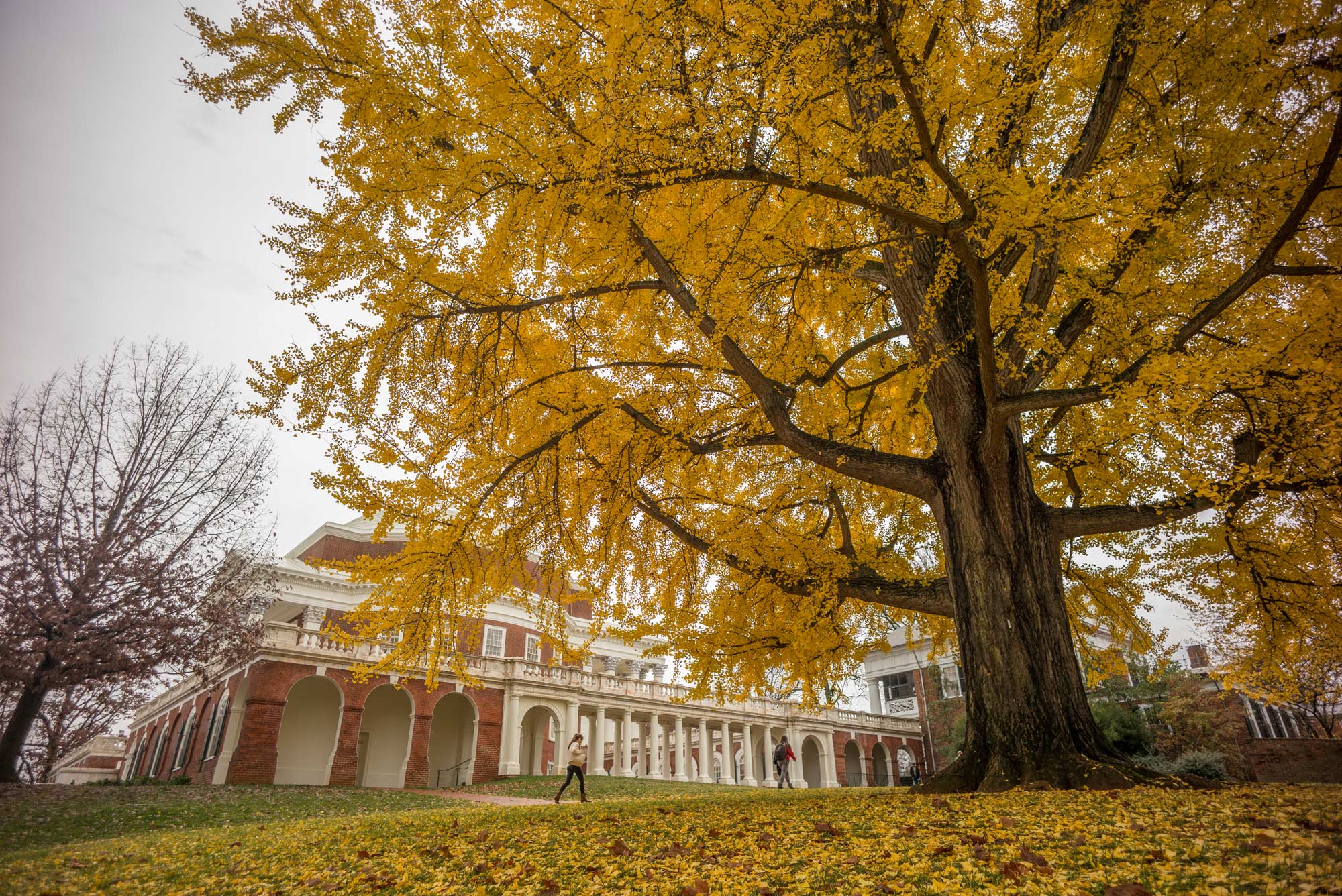The University of Virginia Board of Visitors voted Friday to set tuition and fee rates for the 2020-21 academic year.
The new rates reflect the University’s commitment to remaining one of the best values in higher education and meeting the multi-year objective of proposing a tuition increase at a rate of roughly inflation-plus-1%, using the Higher Education Price Index as the benchmark.
Tuition and mandatory fees for all continuing undergraduates – as well as those undergraduates entering the College of Arts & Sciences, the Curry School of Education and Human Development, the School of Architecture and the McIntire School of Commerce – will increase by 3.6%, or between $510 and $880 annually for in-state students, and $1,710 to $2,094 for out-of-state students.
In accordance with the multi-year plans approved by the board in December 2017, tuition and fee rates for entering undergraduates in the School of Engineering and Applied Science, the Batten School of Leadership and Public Policy and the School of Nursing will be between $1,000 and $2,000 more than rates charged to continuing students in these schools.
The board’s action follows an educational workshop and public comment period on the tuition proposal held in early November.
“These rates are consistent with our commitment to prioritize accessibility and keep tuition increases as low as possible while continuing to meet 100% of students’ demonstrated financial need and offering an exceptional education and student experience,” UVA President Jim Ryan said.
The new rates come as the University is facing potential state budget cuts and a variety of increased costs, including approximately $17 million for faculty and staff merit increases. The undergraduate tuition rate change will generate approximately $11 million in total.
Tuition increases are only implemented after the board has considered other revenue sources and looked for opportunities to increase efficiency. Revenue generated from cost savings, philanthropy, endowment earnings and other revenue sources, as well as from tuition and fee increases, goes toward faculty and staff compensation, investments in academic programs, expanded student health services and facilities, operations and maintenance of facilities and other commonwealth and University priorities.
In the past year, the University refinanced $300 million of existing debt at lower rates and identified dozens of opportunities for improvements in systems and services and other cost-saving measures.
The board also approved on Friday a 3% increase in tuition for both in- and out-of-state students at the University of Virginia’s College at Wise.
Last year, the Board of Visitors maintained the in-state tuition rate for the current academic year, which was made possible by the Virginia General Assembly’s allocation of additional funds to support higher education in 2019-20.
The 2019 In-State Undergraduate Tuition Moderation Fund designated $52.5 million in state funding for public universities that voluntarily held tuition and mandatory educational and general fee charges for in-state undergraduate students to existing levels. As a result, UVA received an additional $5.52 million in state funding.
In addition to meeting 100% of the demonstrated financial need of all undergraduate students, UVA also offers admission to students without any consideration of a family’s financial situation. It is one of only two public universities nationwide to do so.
Last year, UVA provided approximately $143 million in need-based financial aid to undergraduate students through its financial aid program, Access UVA. Fifty-three percent of undergraduate students received some level of financial assistance, and 66% of UVA undergraduate students graduate with no debt.
Ryan last year committed to fully covering tuition and fees for students from Virginia families who earn less than $80,000 per year and have typical assets. UVA also covers tuition, fees and room and board for students from Virginia families earning less than $30,000 per year with typical assets.
Loans are part of some financial aid packages, but will remain capped at $1,000 per year for low-income Virginians and $4,500 per year for other in-state students with demonstrated need.
These efforts have enabled exceptional students from Virginia and beyond to come to UVA regardless of their financial situation, supporting a student body with both cultural and socioeconomic diversity.
UVA also continues to be rated as one of the best values in higher education by both Kiplinger and Money Magazine.
Media Contact
Article Information
December 6, 2019
/content/uva-board-visitors-approves-tuition-rates-2020-21

